(Article medically reviewed by Dr. Zac Hyde M.D
Use Caffeine Like THIS to get more Juice!
Though we rarely think of it as such, caffeine is actually the most widely consumed drug on the planet.
A central nervous stimulant that often comes in the form of tea, coffee, cocoa beans, and more, you can find caffeine and caffeine products anywhere you travel.
But is it good for you?
Moreover, is it possible that there’s a link between your morning wake-up and your morning wood?
Let’s take a look…
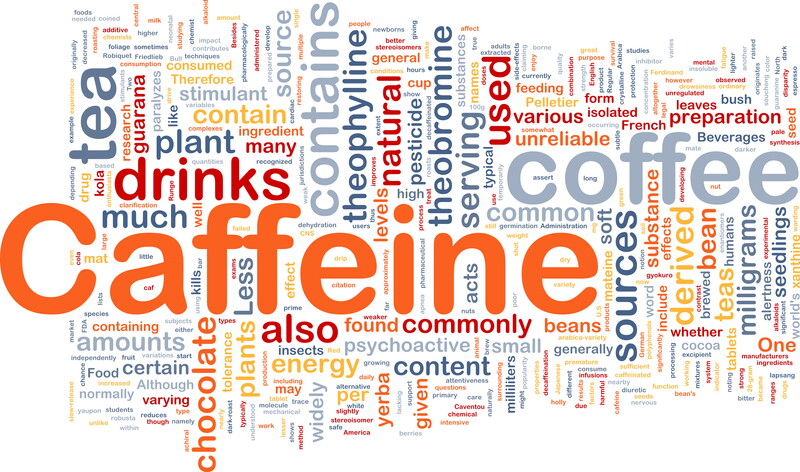
The Relationship Between Caffeine and Testosterone is Clear (But Complicated)
Remember how I said that caffeine is the most widely-consumed drug in the world? That’s true.
And like many other drugs, caffeine doesn’t have just one effect.
So when evaluating whether or not it’s “good” or “bad” for you, we can’t always get as clear an answer as we’d like.
For instance, caffeine consumption has a relationship with cortisol secretion, also known as a “stress hormone.”
We’ve talked about cortisol numerous times in the past, but suffice to say it can really throw a wrench into your testosterone production.
And though one study (which we’ll discuss more later) showed a positive testosterone jump with caffeine supplementation, it’s possible that the cortisol boost might partially negate the benefits.
But again, that’s just one study.
Over the past 20 years, there has been a lot more investigation into how caffeine’s stimulating effects can increase male performance in a number of different areas, especially athletics.
Take a study from 2006. The goal was to examine the effects of a caffeine supplement on the muscular endurance and body strength of men around 21 years of age.
The results indicated a significant increase in both areas when men consumed caffeine and then immediately performed anaerobic exercise (source).
A similar study showed an even stronger relationship between pre-workout caffeine supplementation. In almost all cases, the subjects demonstrated slight increases in both endurance and athletic performance (source).
Another 2008 study showed a similar relationship between caffeine supplementation and exercise, in this case, sprinting.
Specifically, men taking 5 mg per kilo of body mass were able to cut their fastest times by several fractions of a second.
Unfortunately, they also saw a slight increase in overall fatigue.
Caffeine Muscle Power and Strength

To round out the conversation, let’s discuss one more study from the early 2000s. In this case, the potential ergogenic (increasing stamina, performance, or recovery) properties of caffeine were more or less sealed.
More specifically, high-caffeine energy drinks were found to significantly improve muscle power during half-squat and bench-press repetitions (source).
Now, you might be saying that muscle strength, endurance, and stamina have nothing to do with testosterone.
However, that’s not exactly true. You see, your T levels direct correlate with both strength and your ability to build lean muscle mass throughout your life.
That’s why getting fit after 40 is so difficult for many men.
So, while testosterone and athleticism might be two sides of the same coin, that coin is ultimately tied to your ability to perform (in more ways than one).
Still, to better prove the point, let’s get into some studies in which testosterone was a direct, measured factor.
For example…
A glimpse into how rugby players could perform after limited sleep used caffeine as a way of boosting their performance pre-workout.
Before, during, and after the gym session, each participant’s saliva was collected so that both testosterone and cortisol levels could be examined.
The result?
Cortisol trended lower in the non-sleep-deprived athletes, while baseline T levels trended higher.
Moreover, the testosterone response to the exercise increased along with the dosage of caffeine (source).
Or how about the study from 2012, which had male cyclists chewing caffeinated gum during experimental training sessions?
After evaluation, it was discovered that 240 mg of caffeine was enough to boost exercise-related testosterone by up to 14%.
And unlike other similar studies, cortisol levels actually went down as opposed to increasing (source).
One of the more recent studies associated with caffeine and testosterone – this time from 2017 – examined how sleep-deprived men reacted when provided with a moderately high dosage of stimulant before performing aerobic exercise.
In this case, those that were sleep-deprived saw the most significant testosterone boost (source).
Caffeine is an Ergogenic Aid
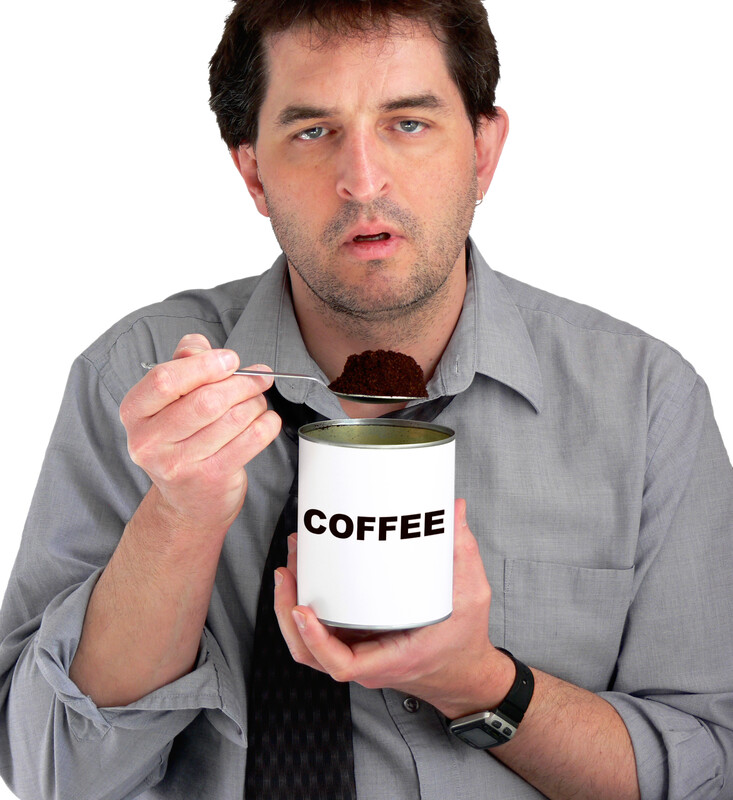
I used the word “ergogenic” a few paragraphs ago, where I described it as anything that has the ability to increase stamina, performance, or recovery.
But it’s more than that.
You see, things can be ergogenic in both a physical way (by impacting the body in one way or another) and in a mental way.
If you’ve ever heard the term “it’s all in your head” or read about the science behind the infamous placebo effect, you’ll know what I’m talking about.
After all, your mind is a powerful thing, and it can – with the right stimuli – encourage your body to do things that it might otherwise not.
But before we go further down that road, let’s discuss just what it is caffeine does to you when you consume it.
Caffeine and Testosterone (How Affects the Body)
When you ingest caffeine, it is rapidly absorbed through your gastrointestinal system, typically within about 20 minutes.
It is later metabolized by the liver, which we’ll discuss a little more in the next section.
Now, throughout the 3-5 hours during which caffeine is affecting your body, it’s theorized that processes ranging from fat oxidation to CNS adenosine receptors to calcium mobilization are all altered in some way or another.
Next, caffeine increases your heart rate and blood pressure, boosting overall cardiac output.
Your lungs experience bronchial dilation as well as the relaxation of the pulmonary muscle.
This is accompanied, as you might expect, by an increased respiratory rate.
This primes one’s body to perform better physically, hence all the athletic-based studies we’ve been highlighting.
Indeed, aside from the research we’ve already discussed, caffeine as an ergogenic has been tested on sleep-deprived Navy Seals to reduce levels of perceived exertion.
It has also been shown to improve running, cycling, and other athletic performances, increasing the “time to exhaustion” by as much as 85% in some cases.
Caffeine has also been shown to boost confidence (remember that placebo effect we mentioned?) which has the added benefit of actually making you perform better.
In fact, the more one’s confidence levels increase (and the more frequently), the better the testosterone reaction will ultimately be (source).
In short: caffeine is a performance-enhancing drug. Period.
At this point, all we really need to know is if the good can outweigh any potential side effects.
Well, for starters…
Caffeine is Very Good for Your Liver
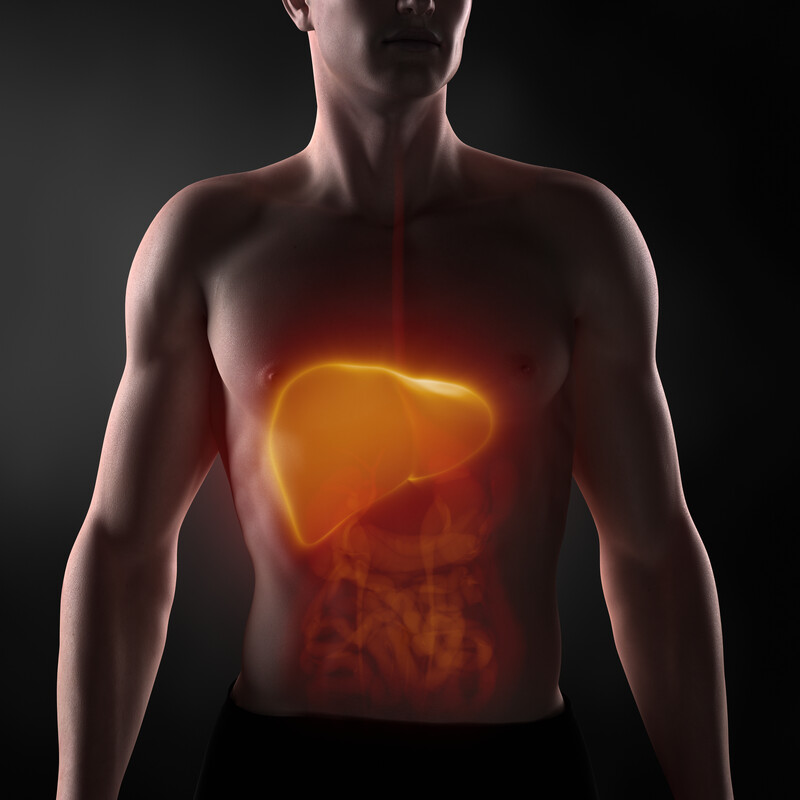
I mentioned above that we’d be discussing the liver in more detail later on.
Well, it’s later, and it’s time to talk about how caffeine (specifically coffee) can help keep your body’s natural filtration system working at optimum levels.
And as we’ll see, this, too, ends up having a positive effect on your testosterone levels.
Now, depending on your age, you’ve probably seen coffee touted as the cure for everything from drunkenness to angina to eczema.
However, in this case, studies show that drinking more than three cups of coffee per day is strongly associated with reduced liver disease (source).
And the primary study we’re referencing was not some tiny endeavor – it included more than 4,500 participants and lasted an entire year!
And while there was no connection between coffee consumption and fatty liver (a precursor to more serious liver disorders) prevention, there was a correlation between daily coffee intake and liver stiffness.
As you may or may not know, liver stiffness is associated with a wide range of conditions, including hepatic fibrosis, chronic liver disease, and acute hepatitis.
In short: it’s not good.
However, the liver is also the only organ in your body capable of actually regenerating itself, and it appears that coffee helps this process.
And not only is the caffeine itself highly beneficial but coffee is packed with antioxidants, which lower inflammation and can stabilize those damaging free radicals running rampant around your systems.
Caffeine Testosterone and Liver Health
Now on to the hormonal effects…
We’ve covered before how men suffering from various forms of liver disease can endure a wide variety of testosterone-related complications.
In fact, one of the biggest studies on the topic found that serum testosterone was significantly reduced in up to 90% of men who had early-onset cirrhosis.
As the disease progressed, those levels continued to worsen.
Of course, your liver comes into the hormonal equation way before you get to the point of cirrhosis.
Let’s be honest, when you’re suffering from an end-stage organ disease, your libido will probably be the last thing on your mind.
But since your liver is responsible for metabolizing estrogen and flushing it out of your body, any reduction in function will lead to a surge in E levels and a subsequent loss of T.
And, as we’ve said many, many, many times before, elevated estrogen is a one-way ticket to erectile dysfunction, depression, gynecomastia (man boobs), and even infertility.
So, the next time your significant other stops by Starbucks for a mid-afternoon pick-me-up, consider making yours a Venti.
Caffeine and Testosterone (Negative Effects)

I can show you studies all day but the science is pretty much settled. For all intents and purposes, coffee is one of the healthiest beverages on the planet.
Aside from everything we’ve discussed above, regular coffee drinkers have even been proven to live longer than those who prefer to wake up with a cold shower.
After all, there are multiple sources of caffeine that are far less healthy than a reliable old cup of joe.
The most notable culprits of all are the high-sugar, high-chemical energy drinks.
And since caffeine is being added to pre-workout supplements in higher and higher doses, those, too, can end up causing some negative side effects if consumed too often.
What effects exactly? Well, how about…
Caffeine Cortisol and Epinephrine Production
Going full circle back to the initial concern from the beginning of the article, we need to talk about that whole cortisol / caffeine relationship just a little bit more.
Like we said, increased consumption of caffeine has a direct relationship with cortisol secretion.
This means that you’re tricking your body into thinking it’s under high stress, which can do serious damage to your cells, organs, and testosterone production.
For instance, in one study, researchers gave athletes various doses of pre-workout caffeine.
The doses ranged from a respectable 200 mg all the way up to 800 mg (or eight full cups of coffee).
After measuring exercise-induced testosterone release, it was found that the group that took the most caffeine saw the biggest hormonal reward (19%).
Unfortunately, their cortisol increased by an average of 44% along with their testosterone.
Then there’s the fact that caffeine intake stimulates the production of both epinephrine (also known as adrenaline) and norepinephrine.
Unfortunately, multiple studies have found that the more adrenaline you have circulating around your system, the less testosterone you will produce.
All of this points to there being a sort of “happy medium” in which one can enjoy the benefits of increased testosterone production without the side effects.
Unfortunately, as we’ll discuss in our “dosage” section, this isn’t always going to be easy to determine.
Elevated Heart Rates and High Blood Pressure
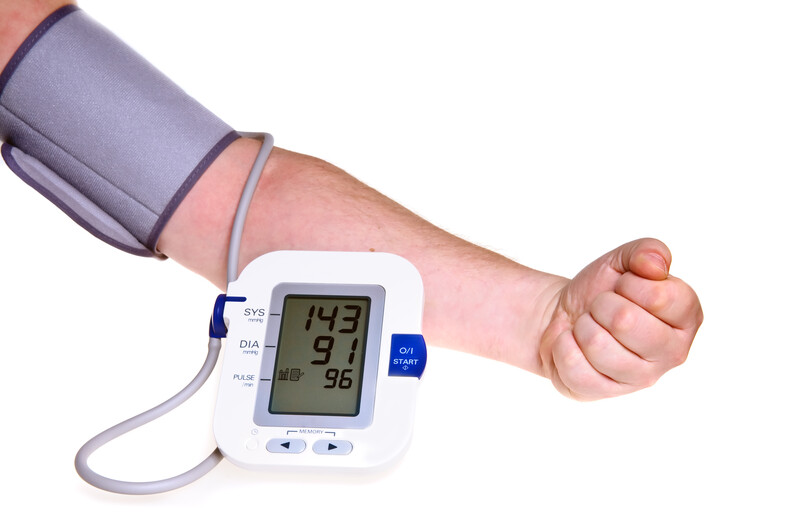
Caffeine elevates your heart rate.
That’s not the end of the world, of course. So does exercise, sex, and lots of other things that are perfectly good for you.
However, since one of the things we’ve been talking about is combining caffeine and exercise, you should be aware of the increased risk of stroke, heart attack, and other medical emergencies.
This is especially true if you’re upwards of 40 or have any circulatory risk factors (obesity, high blood pressure, etc.).
It’s also important to remember that in some cases – not all – an accelerated blood flow can put undue pressure on your blood vessels.
Should they be unable to expand to accommodate the increased supply, you might end up putting yourself at risk for a stroke somewhere down the line.
Is it a guarantee? No.
However, those of us who aren’t exactly spring chickens need to be aware of how caffeine can put a strain on our circulatory system.
In the end, a testosterone boost won’t be worth spit if you wind up six feet deep
Caffeine and Insomnia Issues
When it comes to our health, if there’s one thing that we men neglect above all else, it’s proper sleep.
And this isn’t just about your mood, mental health, and general well-being, either.
Because not getting enough sleep is literally like punching yourself right in the baby-maker.
You see, the vast majority of testosterone production takes place while we’re asleep.
So much so that men with sleep disorders have been found to experience higher risks of infertility.
Of course, caffeine – being a stimulant – can drastically affect your sleep quality and your daytime functioning, resulting in a cycle or reduced testosterone capacity.
Fortunately, studies show that these sleep-gutting effects are most notable when caffeine is consumed in the evening (source).
This means that you can reduce such problems by cutting out all caffeine sources at least 8 hours before bedtime.
While you might fancy a cup of joe after dinner, we recommend making it a decaf.
The Dreaded “Caffeine Crash”
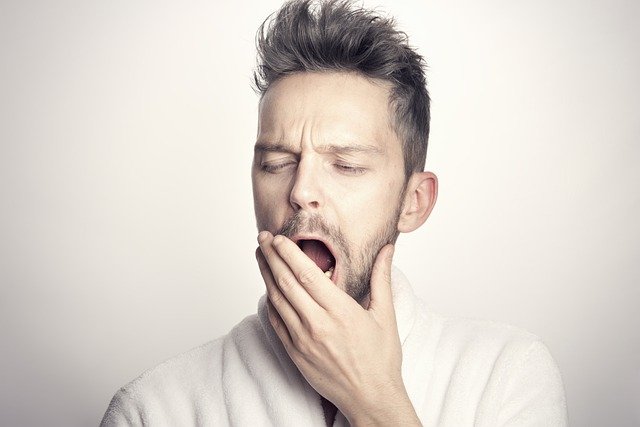
Another issue with caffeine is what’s known as the “afternoon crash.”
This is typically experienced by regular coffee and tea drinkers when their initial morning buzz wears off.
In many cases, it can be typified by headaches, excessive tiredness, irritability, and concentration problems.
And while this is far from what you might call a “health issue,” it can still negatively impact your life and lifestyle.
For instance, all of those things listed above can lead to additional cortisol release, worsening the overall testosterone effects and putting any benefits you might experience on the back burner.
Muscle Tremors, Cramps, and Jitters
Caffeine, as a general rule, can really kick your central nervous system into high gear.
This means that higher than average consumption can really do a number on you physically.
The most common side effects of too much caffeine are muscle cramps, spasms, and unwanted nervous tics.
Are these a health threat? Not at all. However, they are your body’s way of telling you that you’re taking too damn much.
Which leads us to our final section…
Finding the Optimal Caffeine Dosage
The throughline connecting all of the studies, benefits, and negative effects we’ve been discussing is that the amount of caffeine you consume (as well as when you consume it) is what really matters.
In most research, you’ll see dosages ranging from 100 mg to 400 mg, with each 100 mg dose representing about one cup of standard coffee.
What will work for you?
There’s no way to tell except to try different amounts and measure the results.
Obviously, you can’t see your testosterone levels, but you can measure how you feel and how you perform against any of the negative effects.
In my case, I’ve settled on about 200 mg of caffeine per day taken just before exercise.
This gives me a nice boost to my strength output and doesn’t leave me jittery or feeling like crap in the late afternoon.
Caffeine and Testosterone Conclusion
If you take one thing from this article, it should be to stop worrying so much about your daily caffeine consumption.
Your body will give you the signals that you’re taking too much long before you start to see any significant problems.
Moreover, drinking a couple of cups of coffee per day won’t just make you healthier. It will actually help you live longer!
So, if you’re not currently a morning workout person, consider making the switch.
In doing so, you’ll find you can keep your buzz, max your reps, and avoid any testosterone-slaying sleep disturbances at the same time.
